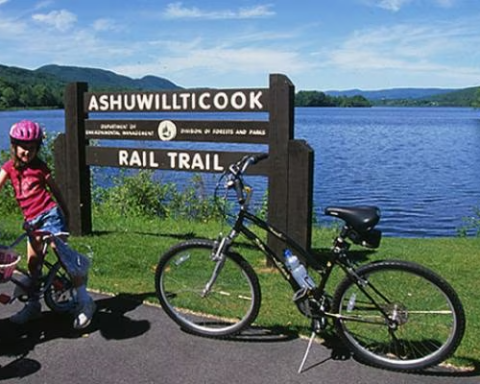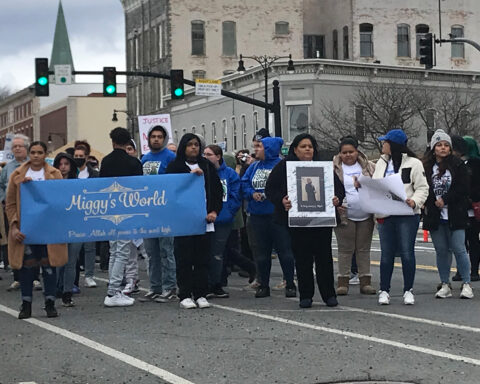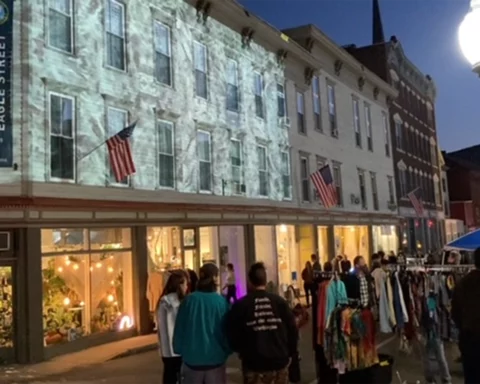A very long time ago, I read an editorial in a newspaper that explained why their editorial board had decided that editorial writers would sign their names to editorials, regardless of what 99.9 percent of the other newspapers were doing. The piece was far more eloquent than my memory is fast, and I’d love to link to an online version, but, having searched for a wasteful amount of time, I am no closer to locating the source. I can sum up it’s contents in a word, though:
Integrity.
The readers deserved to know who was promoting what positions in print.
The reasons against identifying editorial writers are many:
- The writer is trying to express the combined sentiment of the newspaper as a whole.
- The writer needs the freedom to express potent, even incendiary, opinions that could endanger his/her standing socially or professionally or at some point in the future, but are too important to society to be suppressed.
- The opinion being expressed is of such significant value that its premises and conclusion must be protected from the prejudices of readers who may have read and found objectionable the writer’s previous work.
Still other justifications are offered, but, as with the preceding three, all are steaming piles of horseshit.
The real reasons that the habit of witholding authorship is maintained are: 1) fear of community response, 2) fear that the public will discover what an elitist institution a secret editorial board is, and 3) the need to hide unsavory connections to business and political interests that are furthered by the contents of anonymous, yet powerful, insinuations, interpretations, and intimidations that can strike out like lightning bolts from the editorial page.
There are news organizations that use their editorial real estate as the staging ground for political hits. The targets never know — is it really how the whole news organization feels? Do the attacks come at the behest of some powerful individual or group of local leaders who want them gone? The public never knows either. When the Editors support a big ticket, communitiy-changing project or development, is there a financial tie to someone on staff?
You just can’t know. If the news outlet has a long, unblemished history of disinterested reporting and opinionating, and discloses conflicts of interest, you just have to hope that you can trust what you read at least as far as the old saw allows.
The Greylock Glass has no editorial board; there’s just little old me. That solitary executive status is probably why I’ve been so reserved about coming right out with opinions on local politics. Most of my most passionate perspectives have been incarnated as exceedingly well-researched news articles, the facts of which are presented with such precision that readers just can’t help but find themselves on the same side of the issue as this humble writer.
Or so I wish.
You’re a stubbornly independent lot, you GG readers. And you let me know, with a healthy regularity, when you think I’ve missed the mark. I tack my byline on every editorial I write because I want you to feel like our connection is close enough that you can do that. I don’t want you to feel like there’s some editorial star chamber that’s just wiser-than-thou, and that’s why you should weigh what we have to say more seriously than the perspectives of others.
While I am occasionally approached in the supermarket by readers who ask about things I’ve written (and I’m still not sure how I feel about that…), I never feel any particular reason to feel threatened. Quite a few businesses and organizations, on the other hand, have punished me over the years for the Greylock Glass’ leftward tilt by refusing to do business with us. I have faith, however, that one day they’ll need something the Glass have to offer enough that they’ll choose to put politics aside.
Truth be told, most of our audience’s ideological persuasion is pretty close to my own, anyway, so even when I go off on a fuck-the-man rant, the feedback is, for the most part, pretty positive. Still, I haven’t made editorials a regular feature of this newsthing of ours. I believe that needs to change. Not for lack of courage, but out of concern for simple good taste has the Greylock Glass kept many of our opinions to ourselves for the first seven years of our existence. Now, our apprenticeship is done. I really, really, really hope to have other writers on board soon who can also add their voices to the editorial page, but for the time being, expect regular editorials to come from me, beginning with this, our first delivery of endorsements of candidates for local political office.
For our podcast, the “Top Left Corner,” I interviewed Bilal Ansari, Randal Fippinger, and Jane Patton in the last few weeks as they campaigned for the two seats up for grabs on the Williamstown Select Board this year. We discussed the same basic topics for about the same amount of time. There was a surprising amount of similarity of opinion between the three, so it’s difficult to hash out who my picks would be based on their platforms.
In politics, too often “experienced” means “entrenched.” Ideas. Attitudes. Ways of operating. Jane Patton surprised me with what seemed a sincere humility about her need to continue growing and evolving in response to the issues and controversies that surfaced during her tenure on the Board. In particular, her willingness to incorporate Diversity, Equity, and Inclusivity into her considerations seems genuine and spirited. Although some people may view Williamstown’s DIRE committee as nuisance and an affront to their entitled sensibilities, or others lament that it was an unsuccessful attempt to bring about a reckoning, the work of the committee surfaced a lot of emotions and a lot of perspectives that aren’t just going to fall silent. I think the Select Board has a lot to address — I’m willing to take Jane Patton at her word that she gets that.
She has stated more than once that she feels a sense of ownership for the current state of play of a few topics in town, namely the searches for a new police chief and new town manager. She told me that she doesn’t want to leave with those pending issues unresolved. She said she sees the Select Board having a firmer hand on Town affairs going forward, and hints that residents might not have had to go through quite the agony we did over the last few years had the Board more vigorously carried out its oversight responsibilities.
I don’t share Ms. Patton’s embrace of the proposed changes to the Town’s by-laws concerning the RR2 zoning classification. I am, frankly, skeptical of the stated purposes, generally, of Articles 40 through 45 of the Town Meeting warrant and think I detect more than a whiff of opportunism on the breeze. I do admit, however, that some public benefit could arise from elements of these warrant items; however, such benefits could be achieved with a less blunt tool and without the risks of unchecked development, which even the Planning Board admits would be beyond its control should these articles pass at the Town Meeting on May 17.
I was a little disappointed with Ms. Patton’s level of forethought about the ramifications of the climate crisis on Williamstown, specifically, and on the interconnected systems of the Berkshires more broadly. If public policy is your responsibility and you don’t ask “how might the climate crisis affect this issue?” in nearly every single deliberation, you’re fucking up. It’s that simple. From land preservation to the public water supply, to the costs of heating and cooling Town facilities, to how much sand and salt we need to buy next year, to whether or not Williamstown needs to open cooling centers in the summer, to the potential increase in spending on brush– and forest fire suppression, just about every single municipal concern now must be viewed through the lens of climate if the Town hopes to keep pace with changes that now are unavoidable.
And the climate lens must be affixed to the magnifying glass and telescope equally. We knew last year that drought and extreme temperatures would likely affect grain production again this year. Now we learn that the conflict in Ukraine, the “Bread Basket of Europe,” is likely to decrease that country’s grain production by 35 percent, sending demand skyrocketing across three continents, driving up prices at home while the United States is experiencing the worst inflation in 30 years. Hunger does not spare Williamstown. If our least fortunate residents go to bed hungry because of factors swirling hundreds, and also thousands, of miles away, their malnutrition is a local failure.
To be fair, no candidate had connected the climate dots that I have in the various interviews I’ve conducted over the years. Jane Patton, however, demonstrated an eagerness to catch up on the issues and begin applying the science as appropriate, which is a welcome start.
What is experience for if not to apply the lessons learned to present problems and circumstances? Ms. Patton says she wants to serve one more term on the Select Board in an effort to put the Town on a surer course, through some hefty decision making. Her nine years on the Board should equate to an ability to navigate the coming changes and provide leadership from a place of deep familiarity. She admits that she is still learning about certain issues, but she faces no learning curve to the position if she wins. It would be a mistake for Williamstown to lose the benefit of her experience at a time when we need it most. For these reasons, the Greylock Glass endorses Jane Patton for a fourth term as Select Board member.
I have much, much less to say about our next endorsement. In the interest of full disclosure, Randal Fippinger is a friend of mine. We met and got to know each other in a professional capacity and eventually that grew into a personal connection. Rather than devalue my endorsement, I hope that knowledge of our relationship increases your enthusiasm for this candidate. I have personally witnessed Randal’s humility and generosity. He is a world-class listener, which is a trait he incorporated into his campaign, reaching out to seniors and others to get an understanding of what’s important to them.
I know him to be a thoughtful individual, willing to look at different sides of an issue, willing to consider points of view that hadn’t occured to him. He’s a creative problem-solver and manages to be both flexible in demeanor and firm in his principles.
His position at the ’62 Center for Theatre and Dance requires a high degree of administrative aplomb and attention to many details all at the same time. In any bureaucratic organism of that size and complexity, multiple departments can have overlapping, competing priorities, and Randal has impressed me with his ability to keep things chugging along with a smile, regardless of the circumstances.
I do not share his confidence that the proposed chages to the zoning by-laws mentioned earlier will work out for the best in the end, but do believe that his views are formed in good faith.
Randal shares my sentiment that the workings and outcomes of the school system need to be monitored. New leadership in the positions of superintendant and high school principal are certainly a start, but, as I have said many times, we are home to the nation’s number one ranked liberal arts college — with the children of faculty and staff of said college attending public school, wouldn’t you expect it to be more than simply “good?”
Although he would be new to town governance (excepting his term on the DIRE committee), I endorse the candidacy of Randal Fippinger to Select Board for reasons of both his personal character and professional competence.
My conversation with Bilal Ansari left me hoping that he remains involved in critical town affairs. His perspectives are extremely valuable, and his experience championing the rights of the underrepresented are needed if Williamstown is to continue its forward progress. And although I do not, for this election, endorse his candidacy for Select Board, I hope that the eventual Board composition — and indeed all persons with the power to create or enforce policy — heed his excellent advice on the subject of process — make sure that decisions are made with people, not for or about them. Do things with people, not to them. I’ll be enthusiastically watching, over the coming months and years, to see how Mr. Ansari continues to develop his thoughts on collaborative governance. If he runs for office again, I sense that he will have assembled a cogent, well-developed platform with definable planks undergirding his campaign.
My strongest endorsement, however, is reserved for a more informed and involved public. We can all (including me, personally, and the Greylock Glass, as a news source) do much better at keeping abreast of the issues. Had the voters been more vigilant over the past few years, we might not be in such a position of responding to crises; rather, we could be setting the bar for civic engagement.


















Thank you for your thoughtful explanation of your choices, and especially for voicing the need for climate impact awareness on all town issues.
Thanks for this. I’d love to hear more about your opinions about all the warrant items for the upcoming town meeting. I know where I stand on some of them but there are others I certainly don’t fully grasp the issues around them. Thank again.